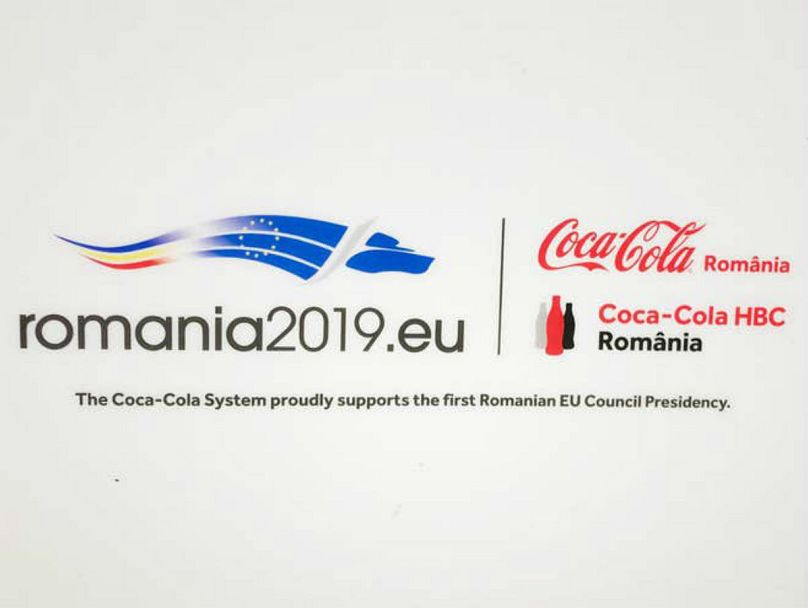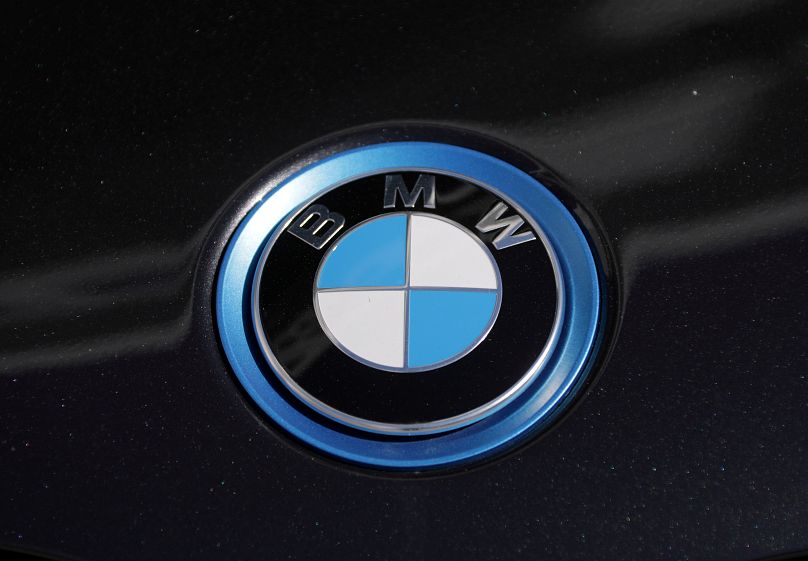Previous host Romania was sponsored by Coca-cola among others, while Finland, which took over as the new rotating president on July 1, announced an agreement with BMW.
Corporate sponsorship of member states hosting the presidency of the Council of the European Union is nothing new.
Previous host Romania was sponsored by Coca-cola among others, while Finland, which took over as the new rotating president on July 1, announced an agreement with BMW.
"EU policy-making and decision making being sponsored in this way looks really bad," lobbying researcher Vicky Cann from Corporate Europe Observatory's (CEO), a non-profit research and campaign group, told Euronews.
She said the key issue with this practice was that these companies are key lobbyists in the EU, looking to "sanitise their reputation".
"The whole process surrounding the sponsorship is very murky," Cann said.
It's hard to say exactly when the sponsorships started but the EU ombudsman made a ruling on the subject in 2005, which suggests this was on at this time.
Member states accepting sponsorship range from from Austria in 2018 (Porsche, Audi, Microsoft, and others), to Bulgaria the same year with had over 50 sponsors, Malta in 2017 (BMW, AirMalta, and Microsoft), Estonia the same year (Microsoft, Mercedes, BMW), and Slovakia in 2016 (Peugeot, Orange, Microsoft).
EU Ombudsman Emily O’Reilly last week opened an inquiry into the private sponsorships, based on a complaint from NGO Foodwatch against the Council of the European Union.
Back in February, the NGO criticised Coca-Cola's sponsorship of the Romanian presidency, saying it was “unacceptable” that the soft drinks giant was allowed to sponsor the presidency while Romania was overseeing discussions on revisions to the General Food Law or packaging rules.
“This kind of relationship between major EU institutions and corporate interests further undermines public trust in European politics and decision makers,” Thilo Bode, Foodwatch’s executive director, said at the time.
The Council replied to the complainant that it "is not in a position to address or comment on the merits of the matter" because "the organisation of the Presidency, including the seeking of sponsorship for elements of a Presidency, is, in principle, a matter for the member state authorities concerned" and "is not a matter falling within the power of decision of the Council".
However, O’Reilly pointed out in the context of a previous inquiry, conducted by her office, the Council took the view that "the Presidency is functionally part of the Council" and it was on this basis that it is difficult to see why it was "not in a position to address or comment the merits of the matter".
She asked for the council's reply by September 13, 2019.
Euronews contacted the Romanian government but had not received a response at the time of publication.
Cann didn't accept the institution's response, saying: "It is easy for the Council to blame countries but there could very easily have been a conversation about this."
This is not the only backlash a member state has faced over a sponsorship agreement: a cross-party group of 97 MEPs in April asked former Finnish prime minister Juhu Sipila in a letter to refuse any corporate sponsorship and to "make a proposal to other member states that all future presidencies agree to such a rule" ahead of its presidency.
"This is normal practice for member states," Anne Sjöholm, head of presidency communications at the prime minister's office, told Euronews of the government's agreement with BMW. "They don't have as many cars as needed and the cost of providing so many vehicles is very high." A sentiment that was echoed by the government at the time.
She said BMW's sponsorship consisted of a fleet of cars that were only for the duration of the presidency — the country doesn't pay anything for these apart from the running costs, such as fuel and drivers.
On transparency, she said Finland had a "very open competition on it (the provision of cars) for which we only had one car company apply" and the "the decision was made by the secretary of the presidency, which only deals with the administrative side, such as booking hotels, and is not involved in policymaking."
Cann acknowledged that hosting the presidency came at extra cost, but argued the onus was on Brussels to remedy this, saying: "If the presidencies are hard to fund, there should be a pot from EU's billion-euro budget."
However, she said the responsibility didn't just fall to the EU, adding that "it would be extremely helpful if one or two countries would signal they won't accept this kind of money."
What's more, she added that the secretariat of the Council could raise the issue of damage to the institution's reputation.
Whatever route change comes through, "it needs to happen quickly," said Cann, as "Croatia is already making plans for its presidency and is already looking around for sponsorship."
"This just seems to have become an automatic thing and it's putting things in a very negative light," she added. "I'm not sure right now the EU needs another controversy like this and it would be such an easy one to stop as well."













